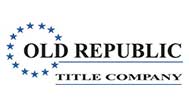While due diligence is highly recommended for any real estate transaction, it is especially crucial for commercial and multifamily properties, whose size and scale present uniquely big challenges and potential liabilities. Multifamily Investors should review our basic guide on performing due diligence for multifamily acquisitions, and hire the attorneys at Marina Title to help counsel them through this vital process. Here are some of the most critical elements to consider.
Environmental Hazards
By virtue of their size and complexity, multifamily properties and developments are particularly susceptible to environmental hazards. The number of occupants not only raises the stakes as far as the potential harm, but also means harsher penalties and more potential litigants. Due diligence should entail an extensive and meticulous review of every nook and cranny of the property, including locating and reporting asbestos, lead-based paint, PCB-containing materials, and other hazards. It should also include inspecting the layout plan to detect underground fuel tanks, waste disposal units, dump sites, and other repositories of hazardous waste. If need be, the final report should include recommendation on how to remove or mitigate these risks.
Exterior Layouts
As with environmental hazards, multifamily developments come under stricter regulatory scrutiny when it comes to their structural integrity. This includes uneven sidewalks, faulty electrical wiring, bad lighting, unsecure hazardous tools or equipment, malfunctioning automatic doors and windows, and inadequate drainage – to name but a few! The due diligence inspection should also take into account local building codes, which will vary by county and municipality. The last thing you need is to be saddled with a publicly recorded code violation or citation.
Maintenance and Safety Issues
Multifamily units have vast and complex systems for water, electricity, heating and cooling, and gas. The probability that some component of these systems is faulty or degraded is high, especially for older developments. They should be extensively tested and examined to avoid running afoul of local, state, and federal laws. By the same token, make sure that fire safety measures – from properly identified exits, to smoke detection devices – are in working order and in accordance with regulations.
The Developer and Contractor
The original construction documents – such as the design layouts and subcontracts – should be made available as part of the due diligence process. Determine the reputability and track record of the builders and subcontractors involved, especially in the case of developers acting as their own general contractors: in such instances, there may be a greater likelihood that quality was compromised to meet a quicker and more profitable deadline.
Note that if any construction defects are found, lawsuits against the builder are capped to ten years after the completion of the project. Thus, if you fail to identify defective construction in older multifamily properties, you will have no remedy to offset the repair costs, making due diligence all the more vital. (In the case of structures that are less than ten years old, the potential claims limit is three years.)
Also bear in mind that the right to sue for defective construction is considered a personal property right that is not automatically transferable with the sale of the property. This means that if the seller knows about a defect, but withholds transferring the right to sue for defective construction, said right remains with the seller and you will have no recourse against the builder even if the suit would otherwise fall within the statute of limitations. That is why due diligence should include all available maintenance paperwork and prior sales and transfer documents, so that you can determine if any defects could have been discovered or gone unreported.
Marina Title Understands the Needs of Multifamily Investors
To get the most out of a multifamily property investment, you must conduct comprehensive and meticulous due diligence. To that end, you should hire Marina Title, whose title and real estate experts have ample experience providing counsel and guidance throughout this complex process. Our team has worked on transactions of all shapes and sizes, including those involving multifamily units. We can help move due diligence along and address any concerns you may have. We know what it takes to ensure an effective and expeditious due diligence process. To learn more, call (855) 513-5880 or email us at info@marinatitle.com.















